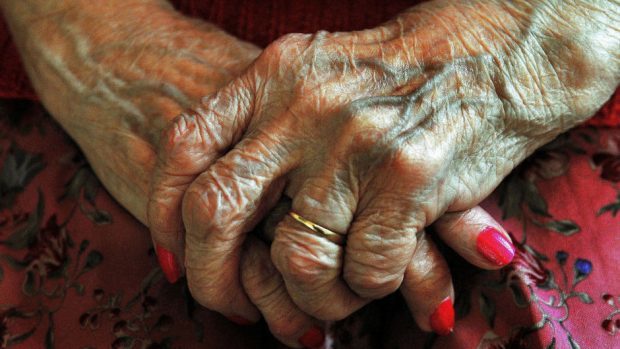I hesitate to say it, but when it comes to the provision of social care for the elderly, unwell, and physically most vulnerable people in Scotland, we are facing something of a crisis.
We are hearing the word ‘crisis’ quite a lot at the moment. We have had months of the ‘Brexit crisis’, as well as the ‘climate crisis’, ‘mental health crisis’ and the ‘housing crisis’. We might think that the word is being overused, but then when we stop to think about each of these issues, we have to say there is no getting away from it – we do face a number of crises at present.
I would rather not use the word again, but when things are really, really serious, and not attending properly to this issue means that people will suffer badly, ‘crisis’ is the only word that can be used. This is not a new problem, rather it is a sustained and chronic crisis which, because there is so much to distract us, really is not getting the attention that it should.
Many of us will have personal experience of the challenge to find appropriate social care for family members. This might be because someone we know had to remain in hospital too long because it was just not possible to put a care package in place for them to return home. It might be because someone we know has special needs and the companies providing home carers cannot resource complex care requests. Or we might have first hand experience of daily home care visits.
In every neighbourhood there are those who receive home care visits each day. These are vital in supporting care in the community, so that the elderly and infirm can remain in their own homes for as long as possible. Each home care visit will be short and timed. The purpose might be personal care, feeding or supporting the taking of essential drugs. With each visit there might be some conversation. Whatever is done, for the one at home the visit rarely feels long enough, with older and frailer folk commenting that they can feel rushed. Even so, the help and assistance is gratefully received and not taken for granted.
For those who offer this home care service, the carers themselves, the experience of this work can be conflicting. On the one hand it is clear that the visits are important, and make all the difference to the client’s day. But carers too feel rushed, wish for longer contact time or a prolonged conversation, often feeling the pressure of the number of calls that they are required to make. The gap between how the job is done at present, and how they would like to do it can be significant.
The social care workforce in Scotland is over 200,000, of whom just over 80% are women. This dedicated workforce commonly experience precarious contracts of employment, unpredictable working hours and unstable earnings. Put these things together with the experience of rushed visits and it goes some way to explaining why there are just not enough carers available.
This crisis is not going away, it is ever present and increasing in seriousness. As the population ages, so does demand. Right now cash-strapped local councils and charities are not be able to fund what is needed, so we can say for certain that things will just get worse unless something changes. For several years now members of all political parties have spoken about a rethink, a massive overhaul of the whole system.
When people speak with politicians, charities, health professionals, church ministers or family members, what people say they want is health and social care that is integrated, that is joined up. People do not want to spend time in hospitals or other institutions unless they really have to. Most people want to be at home, or in a home-like environment. Care and health go together, and they should be planned and paid for together. Right now we have a long way to go to achieve what so many people hope for.
Better quality and more available home care will be costly. In the past few years most political parties have started to address this issue. They rarely say how we will pay for this. It is difficult to imagine real change without all those who are able paying more in taxes. The cost of care is just too high for us to be able to manage to meet the cost any other way. Can we make the care of the elderly and the infirm such a priority that we will do this?
There are signs now that we are approaching a general election. Of the many matters before us let’s place social and health care front and centre.
The Rt Rev Anne Dyer is Episcopalian Bishop of Aberdeen and Orkney and Scotland’s first female bishop

